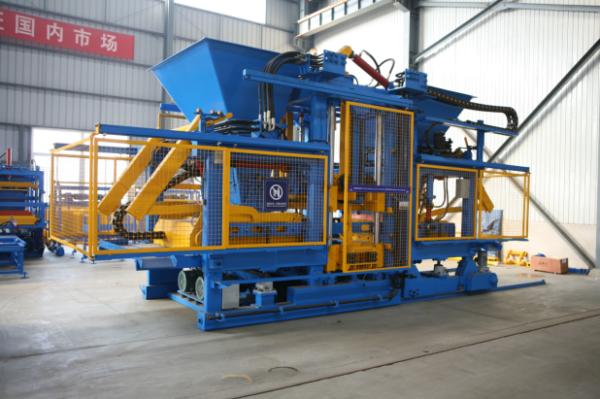There are several types of brick machines available for use in construction and masonry work.
Here are some of the most common types and their uses:
Manual brick machine: A manual brick machine is a simple, hand-operated machine that uses a lever to compress the clay or concrete mix into a brick shape. It is commonly used for small-scale production of bricks and is suitable for use in areas with limited access to power.
Semi-automatic brick machine: A semi-automatic brick machine is a machine that requires some manual intervention, but also has automated features such as a conveyor belt or hydraulic system. It is capable of producing a larger number of bricks than a manual machine and is suitable for small to medium-scale production.
Fully automatic brick machine: A fully automatic brick machine is a machine that requires no manual intervention and has fully automated features such as an electronic control system and a conveyor belt. It is capable of producing a large number of bricks at a high speed and is suitable for large-scale production.
Clay brick machine: A clay brick machine is a machine specifically designed to make clay bricks. It can produce high-quality bricks with a consistent size and shape. It is commonly used in the construction of buildings and other structures.
Concrete brick machine: A concrete brick machine is a machine that uses a concrete mix to produce bricks. It is commonly used in the construction of sidewalks, walls, and other structures where a strong, durable brick is required.
Fly ash brick machine: A fly ash brick machine is a machine that uses fly ash, a byproduct of coal combustion, to produce bricks. It is an eco-friendly alternative to traditional clay or concrete brick machines and is commonly used in the construction of buildings and other structures.
Overall, brick machines are an essential tool in the construction industry. They are used to produce high-quality bricks of various sizes and shapes, which can be used in a wide range of construction applications. The type of brick machine used depends on the specific needs and requirements of the construction project, as well as the scale of production.
What is the cost difference between a manual and a fully automatic brick machine?
The cost difference between a manual and a fully automatic brick machine can vary significantly based on several factors, such as the brand, the model, brick machine manufacturer the capacity, and the location of purchase. However, in general, a fully automatic brick machine is likely to be more expensive than a manual brick machine.
Here are some reasons why:
Automation: A fully automatic brick machine is a highly automated machine that requires less manual intervention than a manual brick machine. It has features such as automatic material feeding, mixing, and brick forming, which can increase the production capacity and efficiency of the machine. However, this automation also increases the cost of the machine as it requires more complex and expensive components such as electronic control systems and sensors.
Capacity: Fully automatic brick machines are designed for high-capacity production, which means that they can produce a large number of bricks in a shorter time compared to manual machines. The higher capacity also means that fully automatic machines are larger and more complex, which further adds to the cost.
Maintenance: Fully automatic brick machines may require more maintenance and repairs compared to manual machines due to their complex components and automation. This can increase the overall cost of ownership.
Labor cost: Manual brick machines require more manual labor to operate, which can result in higher labor costs. Fully automatic machines require less manual labor, which can result in lower labor costs over time.
Overall, the cost difference between a manual and a fully automatic brick machine can range from several hundred to thousands of dollars depending on the features, capacity, and location of purchase. However, it’s important to note that the initial cost is only one factor to consider when choosing a brick machine. Other factors such as production capacity, operating costs, and maintenance requirements should also be taken into account when making a decision.
